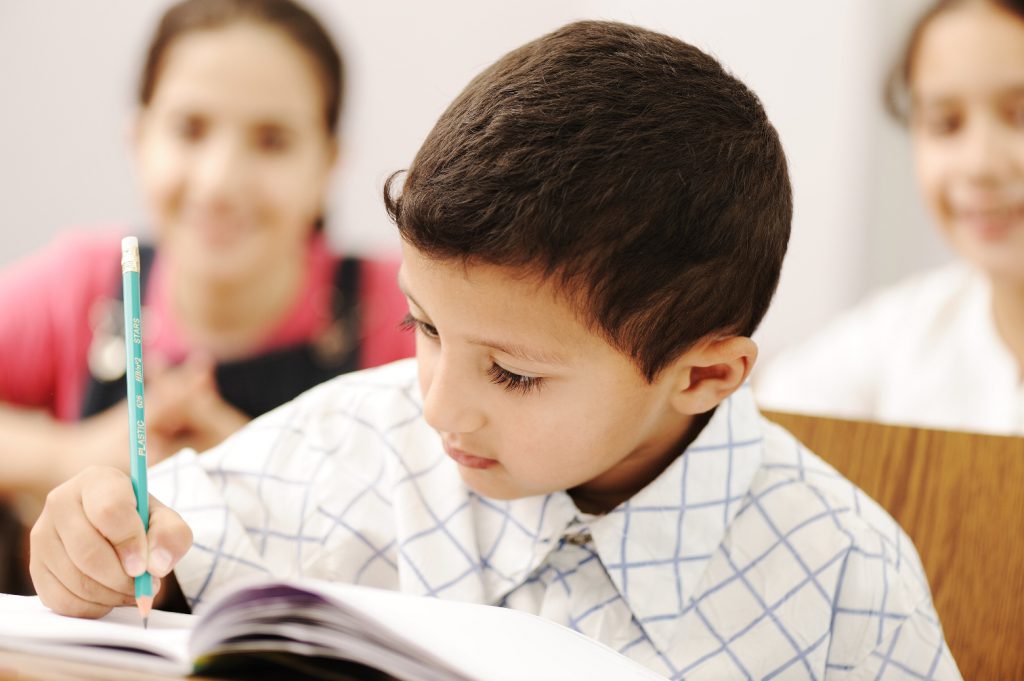How to Help Your Child Be More Mature at School
tl;dr
- Start young - don't wait for school to handle common maturity issues
- Emphasize accepting responsibility for one's actions (the things you can control)
- Make honesty a priority at home - explain why even little fibs lead to lack of trust (for both parents and children)
- Focus on self-control and how it is a lifelong pursuit
- Encourage sharing of feelings, both positive and negative, in a "grown-up way"
- View real data from thousands of parents on children's maturity over time to know what to expect as children enter school
- Try our Free Kindergarten Readiness Test to see how your child compares to their peer group
We all know that children mature differently. Just as children learn verbal and non-verbal communication mostly at home, responsibility, socialization and empathy often develop during the first years of school in those initial interactions with peers and non-parent teachers. How your child interacts with others outside the home is greatly influenced by what they see and hear from their parents and caregivers inside the home. Here are a few ideas to consider if you want to help your child get a head start.
Help your child be more mature at school
Let’s start with school. Being even a little more mature at home with parents and siblings would be great, but earning the Gold Star for Good Citizenship before Christmas break from Ms. Mary (who doesn't regularly give out stars, you know...) would be marvelous!

Remember that responsibility is the key to maturity
Some parents insist that maturity comes with age, convinced their child will "grow-up" after reaching life's next milestone (like starting school, for example). Other parents begin preaching the importance of "being responsible" before the onset of the Terrible Twos.
Unfortunately, the jury is still out on which parenting method results in the "least childish" children (is that a thing?). However, there are steps to you can take while they're young to minimize future outbursts and increase the odds that they'll stop blaming others for their own choices. (As a parent of teenagers, I have to warn you that it gets worse before it gets better!)
Teaching your child responsibility while they are younger is a good way to start. At the very least, they'll have listened to you discuss the concepts so will have a base to start from when they decide they're ready to learn. It involves a lot of talking, explaining and encouraging to compel a toddler to accept at least some responsibility for their actions. But once they understand the concept, they may start acting differently.
Teach your child that honesty is a priority
If you want to help your child be more mature at school, start with the concept we all have understood for as long as we can remember, even if we didn't always follow it: Honesty (such a lonely word). The goal is to help children understand the importance of being honest and truthful. When the opportunity presents itself for a little "Honesty Talk," be calm and welcoming (if you can pull it off) to encourage your child to engage in an adult discussion about what might or might not have happened. A couple steps to follow:
- You should try to create and develop honest and open communication with your child. This will make them feel you are trustworthy and they may start opening up to you (just a little is OK for now). They might hesitate to tell you the truth (the whole truth), so take your time and be patient - they may open up eventually, but the point is to let them know how seriously you take truthfulness.
- Let them know that regardless of the circumstances, being truthful is not only important; it's a priority. Again, it may take some time and effort to explain this, but it's worthwhile in the long run..

Set a few simple rules and stick to them
Like most parents, chances are you're a sucker for that cute, adorable look you get from your toddler after they've broken a house rule (or a vase). It's alright to allow rule-breaking to go unpunished if an honest discussion can be the result. But try to be consistent. A few rules harshly enforced are better than a thousand rules with intermittent follow-through (and frankly, easier for everyone!). Start with rules that are easier for children to understand and follow and increase over time when necessary.
Turn your lesson into a fun game
Children enjoy playing games, especially when they're winning. Use this to your advantage and start keeping score - a point added when rules are followed, a point deducted when they're not.
After a certain number of points, you should throw in a reward like ice-cream, more time for cartoons or whatever your child loves. This approach will motivate them to collect points and teach them a valuable lesson that can help them grow into a more mature individual.

Encourage self-control
If you're working towards helping your child become more mature at school (and elsewhere), it is important to bring up the concept of self-control. Although this can be challenging, especially for very young children, be persistent in order to get the message across.
Self-control is all about regulating your behavior. Naturally, young children lack the self-control of adults (there are exceptions), as it takes years to develop. However, with a lot of patience, support, and effort, parents can teach their children to control themselves by the time they start school.
Some children may take to self-control better than others. Some may find it more difficult to understand, let alone undertake! This is another area where talking about concepts can provide the tools necessary for children to come back to when they're ready to learn. Keep an eye out for situations to bring up the idea of self-control with your children. And not just self-control as it relates to them but include yourself and other adults as well to help them understand that these concepts apply to everyone and they're not being singled-out or punished. However, you are able to start the conversation, self-control can help your child become more mature now and into adulthood.
According to at least one research article on self-control, children with poor or no self-control are more likely to become aggressive and experience anxiety. Also, they are more likely to become dependent on cigarettes and alcohol, or even drugs by the time they finish high school.
On the other hand, a child with self-control has increased ability to resist such temptations and make "the right choices." But you knew that already - so continue finding ways to help your child understand their feelings and control their emotions.

Encourage non-harmful sharing of feelings
Some children cry. Others express negative emotions more… well, negatively. Whether it's a more serious tantrum or escalating to physical violence (pushing, throwing, hitting), it's important to help your child understand and overcome these mood swings.
Expressing feelings (positive and negative) is vitally important for every human. But as a parent, you need to teach your child how to express their negative feelings appropriately. It is essential to help them find ways to control themselves and cope with their emotional reactions. In some cases, it may be best to have a discussion right away. In others, it may be more fruitful to calm down and then talk about the issue.
Guide your child towards becoming a "grown-up"
Helping your child grow into a curious, kind, wise person is one of the most important jobs of parenting. Teaching them to make reasonable decisions, learn from their mistakes, hold themselves accountable, and handle challenges and obstacles rationally takes time and patience. But that's why we're here, as parents, to mold young minds and demonstrate how a mature adult faces the world around them.
In life, a grown-up controls their reactions, approaches issue rationally, and makes good choices (or at least tries to). We all strive to be better. Wiser. Smarter. More rational. But know that to your children, you're the epitome of a "grown-up." You're the best example they have to learn how to face all the joys and challenges ahead. Be encouraged. Talk to your child. Demonstrate the positive behavior you want out of them. And enjoy it!
Looking for some grown-up resources to help navigate the first years of school? At KinderIQ, you will find the best age-appropriate materials and interactive educational tools that will help you guide your child to success in kindergarten and beyond